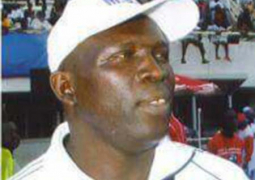The Third Joint Meeting of the Ministers of Finance, Planning and Economic Development organised by the African Union Commission and the Economic Commission for Africa is underway in Lilongwe, Malawi. This meeting has been convened to promote high-level sustainable growth to reduce unemployment in Africa. We also hope that it will focus on issues of poverty reduction and food security as well.
As alluded to by the AU Chairman and Malawian President Bingu Wa Mutharika, at the high-level meeting, Africa is not a poor continent but it is the people of Africa that are poor. This is premised on the realisation that Africa has huge and unexploited wealth consisting of natural and mineral resources, wildlife, fish, river basins, lakes and huge arable land. These are not being exploited or utilized by Africans effectively for their benefit.
The task before the ministers attending the forum, therefore, is to produce an action plan that will enhance fast macroeconomic growth of our continent, increase employment and reduce poverty.
As Africans it is high time we shift our focus from blaming others for our underdevelopment but rather to concentrate on actions and programmes that can uplift us from abject poverty.
To continue lamenting the state of underdevelopment of Africa cannot take us anywhere, but we need to initiate concrete actions for the betterment of us all.
It is high time for us to find solutions to remove us from poverty, and we hope our experts attending the Lilongwe meeting will lead us along the way.
As ministers of Economic Planning and Development and ministers of Finance, they have the required competence and mandate to make things happen. Indeed, they can change Africa for the better. So the question is: Are they ready to act, and to act now?
African governments now must implement home-grown policies conceptualized, designed and owned by the African people. Such policies must be implemented, monitored and evaluated by our own experts. In such a paradigm, the role of the World Bank, the International Monetary Fund and the development partners would be to support the home-grown policies and to ensure that macroeconomic growth and development are sustained.
The choice is also for Africa to take action that will bring Africa to the level where we can effectively participate in global finance and economic issues.
Its empirical evidence today that what Africa needs is not "macroeconomic stability." We need rapid and sustainable level of economic growth within a stable political and economic environment.
A stable political environment embraces democratic governance, rule of law, safeguarding human rights, holding regular polls, fair and credible elections. It also means building a national dialogue and consensus for majority parties to accommodate legitimate concerns of minority opposition parties. It also means opposition leaders gracefully accepting defeat when the electorate has spoken through the ballot box.
A stable macroeconomic environment on the other hand involves maintenance of low interest rates in order to allow ordinary citizens to borrow money, service their loans and grow their businesses. It involves the government maintaining a low rate of inflation in order not to allow the price structure to escalate beyond the reach of the ordinary citizens.
It also involves the maintenance of a stable exchange regime that makes it possible for financial and planning institutions, the business community as well as the civil society, to predict with a reasonable degree of certainty, what the value of their investment, wealth and bank accounts will be six months, one year or two years down the line.
Africa should defy the developed world and subsidise its farmers so it can be able to feed its people. We also call on the developed world to open up their markets.
"Agriculture is perhaps the most inherently sustainable of all human activities, using natural fertility of the land, sunlight, water and human labour to produce the basis necessities for suvival."
Mark Overton
Read Other Articles In Article (Archive)
NCCE sensitises village administrators on roles and responsibilities
Aug 10, 2015, 2:19 PM
Red Cross celebrates First Aid Day
Oct 5, 2015, 10:47 AM


